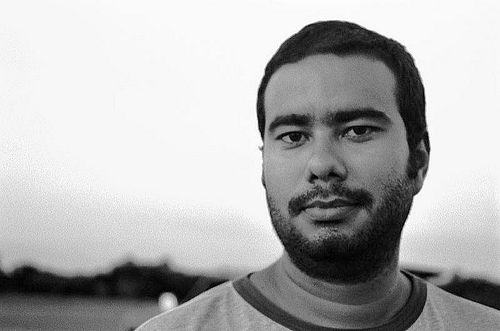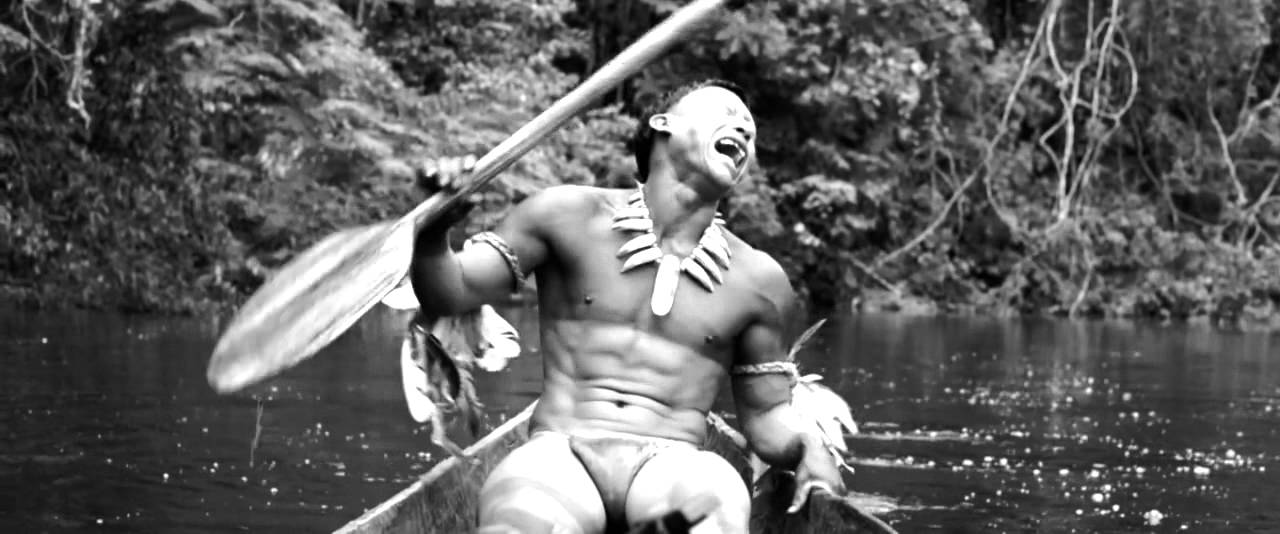- Joined
- Dec 12, 2009
- Messages
- 31,484
- Reaction score
- 9,015
NOTE to NON-MEMBERS: Interested in joining the SHERDOG MOVIE CLUB? Shoot me a PM for more info!
Here's a quick list of all movies watched by the SMC. Or if you prefer, here's a more detailed examination.
Shouldn't it be called, Embrace of the Anaconda? But... isn't that how they kill?

Our Director
Ciro Guerra

* The scene where a man is praised to be the Messiah is based on an actual event.
* Based on diaries by scientists Theodor Koch-Grunberg and Richard Evan Schultes.
* The music Evan plays on the gramophone is Haydn's "The Creation".
* In an interview with actor Tiapuyama (Antonio Bolivar), he listed the indigenous languages featured in the film: Ocaina (which is most frequently spoken), Ticuna, Bora, Andoque, Yucuna (Jukuna), and Muinane.
Members: @europe1 @MusterX @Scott Parker 27 @the muntjac @Cubo de Sangre @sickc0d3r @FrontNakedChoke @AndersonsFoot @Tufts @Coolthulu @Yotsuya @jei @LHWBelt @moreorless87 @ArtemV @Bullitt68 @GSPSAKU @HenryFlower @Nailgun @Rimbaud82 @Deus Ex Machina
Here's a quick list of all movies watched by the SMC. Or if you prefer, here's a more detailed examination.
Shouldn't it be called, Embrace of the Anaconda? But... isn't that how they kill?

Our Director
Ciro Guerra

Ciro Guerra was born on February 6, 1981 in Río de Oro, Cesar, Colombia. He is a director and writer, known for Embrace of the Serpent (2015), Los viajes del viento (2009) and La sombra del caminante (2004).
Our Stars
Nilbio Torres

Jan Bijvoet

Nilbio Torres

Jan Bijvoet

Premise: The story of the relationship between Karamakate, an Amazonian shaman and last survivor of his people, and two scientists who work together over the course of forty years to search the Amazon for a sacred healing plant.
Budget: $1.4 Million
Box Office: $3.4 Million
Budget: $1.4 Million
Box Office: $3.4 Million
Trivia
(Courtesy of the IMDB)
* First Colombian film nominated for an Academy Award for Best Foreign Film.(Courtesy of the IMDB)
* The scene where a man is praised to be the Messiah is based on an actual event.
* Based on diaries by scientists Theodor Koch-Grunberg and Richard Evan Schultes.
* The music Evan plays on the gramophone is Haydn's "The Creation".
* In an interview with actor Tiapuyama (Antonio Bolivar), he listed the indigenous languages featured in the film: Ocaina (which is most frequently spoken), Ticuna, Bora, Andoque, Yucuna (Jukuna), and Muinane.
Members: @europe1 @MusterX @Scott Parker 27 @the muntjac @Cubo de Sangre @sickc0d3r @FrontNakedChoke @AndersonsFoot @Tufts @Coolthulu @Yotsuya @jei @LHWBelt @moreorless87 @ArtemV @Bullitt68 @GSPSAKU @HenryFlower @Nailgun @Rimbaud82 @Deus Ex Machina







